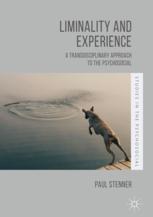

Most ebook files are in PDF format, so you can easily read them using various software such as Foxit Reader or directly on the Google Chrome browser.
Some ebook files are released by publishers in other formats such as .awz, .mobi, .epub, .fb2, etc. You may need to install specific software to read these formats on mobile/PC, such as Calibre.
Please read the tutorial at this link: https://ebookbell.com/faq
We offer FREE conversion to the popular formats you request; however, this may take some time. Therefore, right after payment, please email us, and we will try to provide the service as quickly as possible.
For some exceptional file formats or broken links (if any), please refrain from opening any disputes. Instead, email us first, and we will try to assist within a maximum of 6 hours.
EbookBell Team

4.3
98 reviewsThis book breathes new life into the study of liminal experiences of transition and transformation, or ‘becoming’. It brings fresh insight into affect and emotion, dream and imagination, and fabulation and symbolism by tracing their relation to experiences of liminality. The author proposes a distinctive theory of the relationship between psychology and the social sciences with much to share with the arts. Its premise is that psychosocial existence is not made of ‘stuff’ like building blocks, but of happenings and events in which the many elements that compose our lives are temporarily drawn together. The social is not a thing but a flow of processes, and our personal subjectivity is part of that flow, ‘selves’ being tightly interwoven with ‘others’. But there are breaks and ruptures in the flow, and during these liminal occasions our experience unravels and is rewoven. This book puts such moments at the core of the psychosocial research agenda. Of transdisciplinary scope, it will appeal beyond psychosocial studies and social psychology to all scholars interested in the interface between experience and social (dis)order.